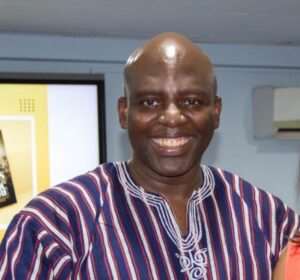
Last Wednesday (April 23), the Center for Democratic Development (CDD-Ghana) held a regional dissemination event to share with Ghanaians, results from the 2024 Afrobarometer survey.
One of the findings that has gained media attention is how Ghanaians responded to this question – Which of the following statements is closest to your view? (Choose Statement 1 or Statement 2). Statement 1: Armed forces should never intervene in the country’s political process; Statement 2: It is legitimate for the armed forces to take control of government when elected leaders abuse power for their own ends.
In response, 51% supported Statement 2 (intervene when power is abused) compared to 47% who supported Statement 1 (never intervene). The worrying signal is the change between when the question was first asked (Round 9, 2022) and the most recent survey (Round 10, 2024). Between the two rounds, the percentage of Ghanaians in support of Statement 2 increased (+11) while those in support of Statement 1 decreased (-8).
The media, and rightly so, have reported widely on this worrying signal. It is understandable given the current context of democratic vulnerabilities in West Africa. It is however important to throw further light on Ghanaian views on authoritarian alternatives to democracy. The critical point to note is this – the Ghanaian position on authoritarian alternatives to democracy is more nuanced and this finding must not be construed as citizen’s calling for military rule.
What Else Did This 51% Say?
The interest in this finding has been focused on the 51% who support military intervention if power is abused. Let me therefore explore what this group said about military intervention and authoritarian alternatives to democracy.
First, the survey also asked Ghanaians this – “If the military were ever to intervene in government, which of the following three statements is closest to your opinion?” Among this group, 27% said “restore civilian rule as soon as possible” with another 51% saying “gradual transition back to civilian rule.” Notice that whether immediate or gradual, this group prefers civilian rule and the support for military intervention is both conditional and temporal.
Second, it is also important to note that this group is not against democracy. In fact, seven out of ten (68%) said in the same survey “democracy is preferable to any other form of government.”
Third, part of their support for the idea of a conditional support for military intervention is reflective of their current feelings about the state of democracy in Ghana. Only 45% express being “fairly satisfied/very satisfied” with the way democracy is working in Ghana. Also, 37% described Ghana as a “democracy with major problems” and another 35% describing the country as a “democracy with minor problems.”
The point is this – the 51% driving concerns about this worrying signal do not have strong levels of satisfaction with democracy and do believe the country’s democratic architecture has problems. But they still prefer democracy to any other form of government.
How Do Ghanaians Feel About Authoritarian Governments?
What about Ghanaians in general? Are there signals that they are growing in their acceptance of authoritarian alternatives to democracy? The answer is a categorical NO.
In the survey, 85% disapproved of “only one political party being allowed to stand for election and hold office”; 87% disapproved of “elections and Parliament being abolished so that the president can decide everything”; and 62% disapproved of “the army coming in to govern the country.” While the disapproval of military rule is not at high as that of one man or one-party it is also not at a level that is extremely worrying for now.
On the question of what should happen if the military intervenes, 38% support restoring civilian rule “as soon as possible” while 41% support “gradual restoration” of civilian rule. So again, we see that whether gradual or immediate, eight out of ten Ghanaians (79%) still prefer a return to civilian rule in the event of military intervention.
Is Ghana’s Democracy in Trouble?
First, 73% of Ghanaians say, “democracy is preferable to any other form of government.” Second, 83% say “we should choose our leaders in this country through regular, open, and honest elections.” Third, 69% say “many political parties are needed to make sure that Ghanaians have real choices in who governs them.” Essentially, Ghanaians prefer democracy and support the core elements of democracy such as elections and multipartyism.
When asked about the extent of democracy in Ghana, a combined 70% describe the country as a “democracy with major/minor problems.”
A comprehensive review of the results reveals areas of our democracy that needs immediate attention – trust in institutions, growing perceptions of institutional corruption, a significant drop in the level of satisfaction with the way democracy is working, and dissatisfaction with how well our democracy is handling various socio-economic issues.
John Osae-Kwapong (Ph.D) is a Democracy and Development (D&D) Fellow at the Ghana Center for Democratic Development (CDD-Ghana) and the Project Director at The Democracy Project.


